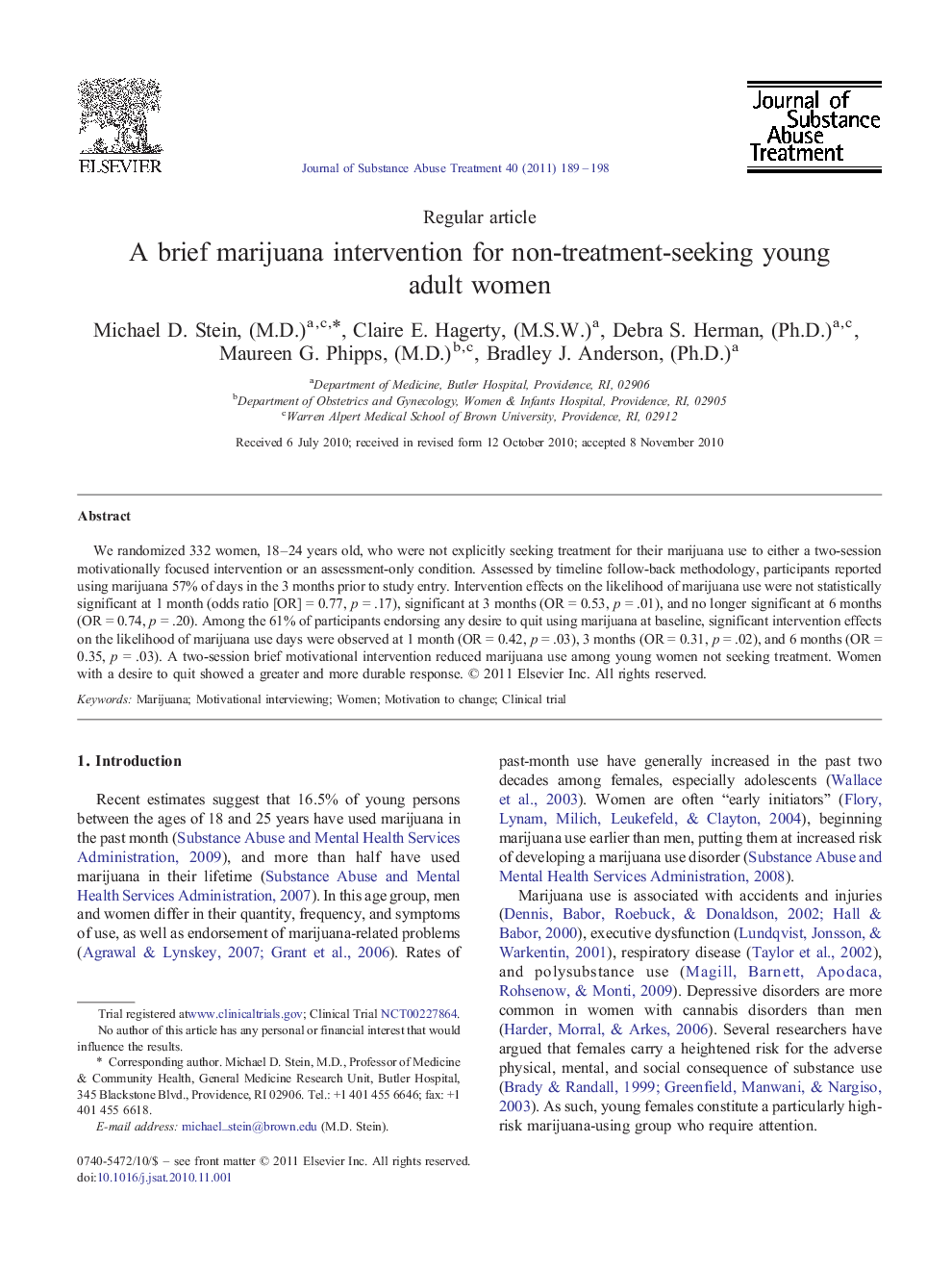| Article ID | Journal | Published Year | Pages | File Type |
|---|---|---|---|---|
| 328224 | Journal of Substance Abuse Treatment | 2011 | 10 Pages |
We randomized 332 women, 18–24 years old, who were not explicitly seeking treatment for their marijuana use to either a two-session motivationally focused intervention or an assessment-only condition. Assessed by timeline follow-back methodology, participants reported using marijuana 57% of days in the 3 months prior to study entry. Intervention effects on the likelihood of marijuana use were not statistically significant at 1 month (odds ratio [OR] = 0.77, p = .17), significant at 3 months (OR = 0.53, p = .01), and no longer significant at 6 months (OR = 0.74, p = .20). Among the 61% of participants endorsing any desire to quit using marijuana at baseline, significant intervention effects on the likelihood of marijuana use days were observed at 1 month (OR = 0.42, p = .03), 3 months (OR = 0.31, p = .02), and 6 months (OR = 0.35, p = .03). A two-session brief motivational intervention reduced marijuana use among young women not seeking treatment. Women with a desire to quit showed a greater and more durable response.
